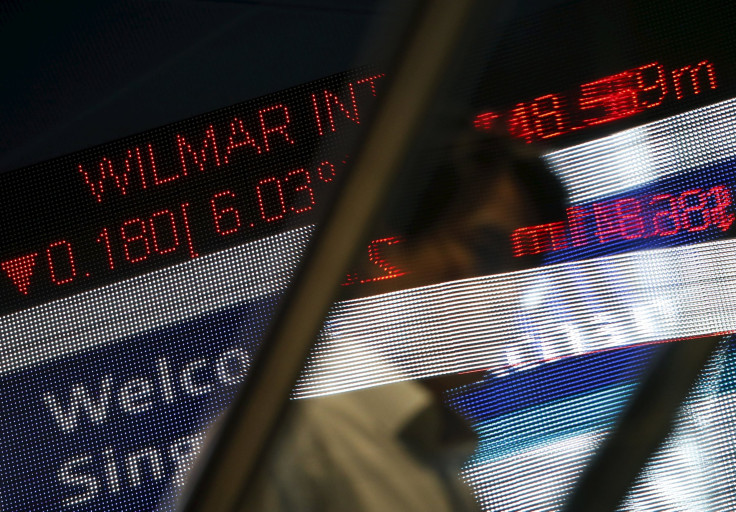Asian Shares Hurt By Volatility After Short-Lived Rally, Chinese Stocks Continue To Worry Investors

Update as of 3:10 a.m. EDT: Japan’s Nikkei 225, which made a slight recovery during day trade, closed down 4 percent Tuesday -- dragged by a sell-off in Chinese markets in the second half.
India’s Sensex, which saw wide swings during Tuesday’s trade, was trading down 0.02 percent. Australia’s S&P ASX200, however, finished 2.4 percent higher, seemingly immune to the rout in Chinese markets.
“The buying opportunities in the ASX today were clearly far too tempting. Banks led the rise today, with the sector up over 4 percent,” Angus Nicholson at the U.K.-based IG Group told the Guardian.
Update as of 1:50 a.m. EDT: Asian markets, which had begun recovering after Monday’s dramatic falls, were hit by wild fluctuations during Tuesday’s trading.
As Chinese markets opened post-lunch, the Shanghai Composite index fell more than 6 percent, dragging Tokyo’s Nikkei 225 over 3 percent down and India’s Sensex was 1.2 percent in the red. Both markets had initially recovered during early trading following a short-lived rally. However, Australia’s S&P ASX 200 and South Korea’s Kospi Composite index are still trading up, defying the Chinese stock market rout.
Original story:
Asian markets rebounded Tuesday after suffering heavy losses on a day dubbed “Black Monday” by Chinese media. While most Asian markets, including Japan’s Nikkei 225 and India’s Sensex, opened lower Tuesday, they recovered losses in later trading.
The Nikkei 225, which plunged more than 4 percent at the open, is currently trading down 0.3 percent. The Sensex, which had plummeted more than 1,500 points during Monday's trade, recovered Tuesday, opening 300 points up. It is currently trading 0.6 percent higher.
Hong Kong’s Hang Seng, which lost 4.6 percent Monday, gained 1.6 percent to trade at 21,595.74. Meanwhile, Australia’s S&P ASX 200 advanced 2.2 percent to 5,112.3 and Seoul’s Kospi Composite index was trading up 1.5 percent after shedding 3 percent the previous day.
“There appears to be buyback as many markets look oversold after panicky selling in the last few days. Even the shares that had little business ties with China were sold,” Yukino Yamada, senior strategist at Daiwa Securities in Tokyo, told the Guardian.
However, China’s Shanghai Composite index is still down 5.3 percent, indicating that Chinese stocks are still being sold. The index initially lost 6.4 percent in early trading, despite a nearly $24 billion injection of liquidity by China’s central bank during open-market operations.
Chinese shares led Monday’s market meltdown, plunging more than 8 percent to report their biggest losses since 2007 and raising worries that firms and countries that rely on high demand from the Asian nation -- the world’s second-largest economy -- will be affected by China’s economic slowdown.
© Copyright IBTimes 2024. All rights reserved.




















